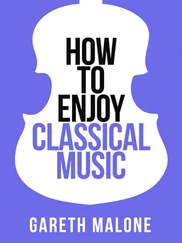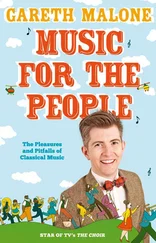STEPHEN FRY - OF CLASSICAL MUSIC
Здесь есть возможность читать онлайн «STEPHEN FRY - OF CLASSICAL MUSIC» весь текст электронной книги совершенно бесплатно (целиком полную версию без сокращений). В некоторых случаях можно слушать аудио, скачать через торрент в формате fb2 и присутствует краткое содержание. Жанр: на английском языке. Описание произведения, (предисловие) а так же отзывы посетителей доступны на портале библиотеки ЛибКат.
- Название:OF CLASSICAL MUSIC
- Автор:
- Жанр:
- Год:неизвестен
- ISBN:нет данных
- Рейтинг книги:5 / 5. Голосов: 1
-
Избранное:Добавить в избранное
- Отзывы:
-
Ваша оценка:
- 100
- 1
- 2
- 3
- 4
- 5
OF CLASSICAL MUSIC: краткое содержание, описание и аннотация
Предлагаем к чтению аннотацию, описание, краткое содержание или предисловие (зависит от того, что написал сам автор книги «OF CLASSICAL MUSIC»). Если вы не нашли необходимую информацию о книге — напишите в комментариях, мы постараемся отыскать её.
OF CLASSICAL MUSIC — читать онлайн бесплатно полную книгу (весь текст) целиком
Ниже представлен текст книги, разбитый по страницам. Система сохранения места последней прочитанной страницы, позволяет с удобством читать онлайн бесплатно книгу «OF CLASSICAL MUSIC», без необходимости каждый раз заново искать на чём Вы остановились. Поставьте закладку, и сможете в любой момент перейти на страницу, на которой закончили чтение.
Интервал:
Закладка:
It's a concerto that takes your breath away. Fierce. Urgent. Celestial. Angry, even, and not surprisingly. The last movement seems to transcend just a concert piece to become a ten minutes or so of music theatre. I have no real practical knowledge of the violin - unless you count picking one up from the transport lost property office, having left it on countless buses while still at school - but I always imagine that you can really attack the last movement of the Sibelius Violin Concerto. It's so aggressive, so 'and furthermore…', it's the violin giving an Arthur Scargill speech, complete with jousting finger. Marvellous work. 'I «©*©*N^ DO WANT TO
CHANGE THE WORLD,
re you sitting comfortably? Then I'll begin. Once upon a time, in a land far, far away, there was an awful lot of war going on, and thousands of people were being killed. No, not exactly a fairy story is it? Descriptive enough of 1 §04, though. Russia and Japan were the main ones, this year, to be fair, with Port Arthur besieged, Seoul occupied and what have you. In the field of science, Rutherford and Soddy had just postulated their general theory of relativity, the first ultraviolet lamps had appeared, and - well I imagine it counts as science -Rolls-Royce had been founded. Also, Freud had published a little light bedtime reading in the form of The Psychopatholqgy of Everyday Life. Lovely! Bet it was flying off the shelves as people read it with their cocoa, the world over. What else? Jean Jaures issued the Socialist paper, L'Humanite, Helen Keller graduated from Radcliffe College, and the first radio transmission of music occurred in Graz in Austria. As for Anton Chekhov, well, he's only gone and died, hasn't he! Teh! Not before issuing The Cherry Orchard, though. Add to all this Picasso's Two Sisters, Rousseau's The Wedding and the death of Dvorak, and well, that's nearly the end of 1904. But not quite! Oh no.
No. Before 1904 can finish, the London Symphony Orchestra give their first ever concert. Still going strong today, despite a close shave in 1912, when they cancelled their crossing to New York aboard the Titanic. Lucky, really. Still. All's well that end's well.
Musically, there's such a lot going on, so it might be a good idea if I just illustrated two pieces back to back, by way of saying 'Gosh, weren't there a lot of crazy different styles going on, back then,' and also by way of skipping the rest out. Yes, why don't I do that.
Charles Ives. It's a very nice name, very placid, I always think. But it conceals a wonderful life, that placid name. Mr Ives was originally a Connecticut businessman and a very successful one, too. He made millions. From insurance, would you believe. But when he had to leave his business through ill health, he turned to what had up until then been his hobby - his music. His dad had been a band leader, and I think it's fair to say that he was not a typical late-nineteenth-century example of the species. He'd have his son sing in one key while he played piano in another, just for fun. (This is one area where I feel I'm at a distinct advantage compared to even some of the best musicians in that I've been able to sing in anything BUT the key being played ever since I was little.) With an upbringing like that, something was always going to stick, and Ives went on to experiment with 'bi-tonality' (as they call it in boffinland, literally 'two keys') in his more serious mature pieces. So, in Three Places in New England, from 1904, he features two bands playing different music at different speeds. It was said to have been inspired partly, too, by an occasion where he witnessed something similar in the street, with two marching bands approaching the same point, playing different stuff. Great fun.
This was also the Year of the Butterfly for the forty-six-year-old Giacomo Puccini. Puccini was born into a time in Italy when a man with a gift for heartfelt music and a love of opera could only ever do well. By the time Puccini was twenty-six, Verdi had been on a self-imposed musical silence for some eleven years - hadn't produced a note, opera or otherwise. And he wouldn't for a good few years yet. A Verdi-less period, in the end, of some thirteen years! A gap had opened up in Italian opera. Puccini entered a one-act opera, Le Villi - The Witches, in a local publisher's opera competition. Totally brushing aside that it was not even mentioned in despatches, he managed to get die work staged and it was a big success. By 1904, Puccini had already written three truly great operas - Manon Lesctmt, La Boheme and Tosca, with La Boheme entering many folks' books as one of the greatest operas ever written. This year, though, produced what Puccini would go on to call his own favourite from his entire collection of operas. It concerns a young geisha called Cio-Cio San and her tragic love for die BASTARD! US naval officer, Lieutenant Pinkerton. He left the opera with the same tide as the original play on which it was based. Madame Butterfly.
Puccini opera isn't everybody's cup of tea. Indeed, as I confessed earlier, there was a time when I wouldn't go near it with a bargepole -well, have you ever tried to check a bargepole into the ROH cloakroom? It's lush stuff, it's raw stuff, too, in the sense that Puccini is shameless in using material that other composers might shy away from, for want of being called 'cheesy' or 'louche'. ('Jejune', even.) But Puccini says, no, if that's what tugs at the heartstrings, then that's what I'm going to write - and he does. It's shameless stuff- 'vulgar', I remember being a buzzword, one season, at the Opera House's production of Turandot - but it's quite simply FAB. Un bel di». You bet it is.
And you see, that's what I love about 'classical' music - how can you ever think you'll tire of it when it can mean Charles Ives's Three Places in New England, but it can also mean 'Dolce notte' from Puccini's Madame Butterfly) Is there any more varied thing on the planet?
SYMPHONY OF A THOUSAND DAYS
T
? be strictiy accurate, or should that be 'inaccurate', that headline should read Symphony of a Thousand Or So Days, but, well, it didn't read quite as well. The Thousand (Or So) Days are the ones between the dawn of 1907 and the dusk of 1910, and they just happen to be The Thousand (Or So) Days within which Mahler wrote one of his biggies. The one that would send the orchestra manager in Munich apoplectic, with its demands for an extended set of musicians of up to a thousand people. (Poor man, probably had a nervous twitch for the rest of his life, like Herbert Lom in the Pink Panther movies.) 1907, then. The Russo-Japanese war ended with the, wait for it, Treaty of Portsmouth. The Treaty of Portsmouth! Wow, I bet they were all a bit sore about that. Portsmouth! And they'd been hoping to have it in Barbados! Also, Norway has separated from Sweden (Norway got the CDs), the Sinn Fein Party is now founded and Albert Einstein has, by this point: a) formulated the special theory of relativity, b) formulated the law of mass energy, c) created the Brownian theory of motion, and d) formulated the photon theory of light. It's no doubt at this point that someone taps him on the shoulder and says, 'Hey, Albert, love. Look, nobody likes a smartarse. OK?' Elsewhere, Oscar Wilde has published De Profundis- from the grave, Picasso has moved from blue to a healthy pink, while Cezanne and Ibsen have, in turn, moved from a healthy pink to a less healthy composty brown. Er, that is, they died. Sorry. Tried to break it to you gendy. In 1907 too, the recendy created Nobel Prize for Literature goes to Kipling, while, in the 'arty' world, Cubism is the big noise, as proven by Pablo 'Pink' Picasso's Les Demoiselles d'Avignon - which loosely translates as 'Ooh, I don't fancy yours much!' As for the divine world of music, well it is probably blissfully unaware of the latest trick up Gustav Mahler's sleeve.
Читать дальшеИнтервал:
Закладка:
Похожие книги на «OF CLASSICAL MUSIC»
Представляем Вашему вниманию похожие книги на «OF CLASSICAL MUSIC» списком для выбора. Мы отобрали схожую по названию и смыслу литературу в надежде предоставить читателям больше вариантов отыскать новые, интересные, ещё непрочитанные произведения.
Обсуждение, отзывы о книге «OF CLASSICAL MUSIC» и просто собственные мнения читателей. Оставьте ваши комментарии, напишите, что Вы думаете о произведении, его смысле или главных героях. Укажите что конкретно понравилось, а что нет, и почему Вы так считаете.










